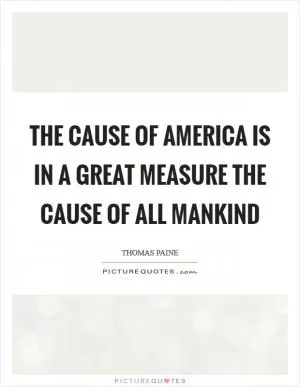Where there are no distinctions there can be no superiority; perfect equality affords no temptation

Where there are no distinctions there can be no superiority; perfect equality affords no temptation
Thomas Paine, a prominent figure in the American Revolution and a key advocate for independence from British rule, was a firm believer in the principles of equality and democracy. His famous quote, "Where there are no distinctions there can be no superiority; perfect equality affords no temptation," reflects his deep-seated belief in the importance of equality among individuals.Paine's words highlight the idea that true equality can only exist when there are no distinctions or hierarchies that separate individuals based on factors such as wealth, social status, or power. In a society where everyone is treated as equals, there can be no room for one person to claim superiority over another. This notion of equality was central to Paine's vision of a just and fair society, where every individual had the same rights and opportunities regardless of their background or circumstances.
Paine believed that the temptation for superiority arises when there are inequalities present in society. When some individuals are given special privileges or advantages over others, it creates a sense of hierarchy and competition that can lead to feelings of superiority and entitlement. Paine argued that true equality eliminates this temptation by ensuring that everyone is treated fairly and has the same opportunities to succeed.












 Friendship Quotes
Friendship Quotes Love Quotes
Love Quotes Life Quotes
Life Quotes Funny Quotes
Funny Quotes Motivational Quotes
Motivational Quotes Inspirational Quotes
Inspirational Quotes